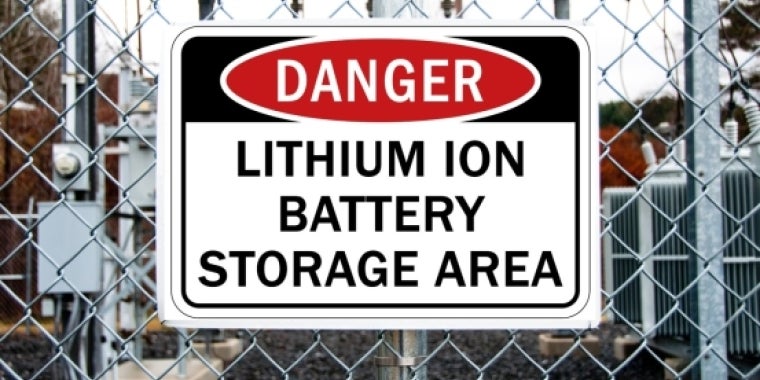
Senator Lanza Urges Staten Islanders to Take Precautions During Dangerously Hot Weather and Offers Tips to Beat the Heat
July 22, 2016
Senator Andrew Lanza today advised that dangerously hot weather is forecasted for Friday, July 22 and Saturday, July 23 and the National Weather Service issued a heat advisory in effect beginning noon Friday. New Yorkers should take precautions to prevent serious illness from extreme heat, especially among vulnerable individuals such as seniors and those with chronic medical conditions. New Yorkers should use air conditioning to stay cool, go to a place that has air conditioning if it is not available at home, drink water at regular intervals, and limit strenuous activity, especially during the hottest parts of the day.
To help New Yorkers beat the heat, cooling centers have been opened throughout the five boroughs Today and Tomorrow. To find the nearest cooling center - including accessible facilities - call 311 (TTY: 212-504-4115) or visit NYC Emergency Management's Cooling Center Finder at www.nyc.gov/beattheheat. The Cooling Center Finder will be updated with information about sites for Friday and Saturday beginning at 8:00 PM tonight. Cooling centers are air conditioned facilities, such as libraries, community centers, senior centers and NYCHA facilities that are open to the public during heat emergencies.
HELPING NEW YORKERS TO BEAT THE HEAT:
The Department of Homeless Services has issued a Code Red Alert and has enhanced outreach. Single adults can present to any shelter to seek refuge from the heat. Transportation is also available to cooling centers via DHS outreach teams, which are checking on vulnerable, at-risk clients with greater frequency.
The Department for the Aging will open senior centers as cooling centers, and home care agencies are on the lookout for clients who may need assistance. Case management agencies are also calling to check on home-bound seniors.
The Fire Department has hydrant spray caps available for any adult 18 years or older at a fire house upon request.
NYC Water-on-the-Go fountains are available across all five boroughs. Schedules can be found here.
An Excavation Safety Alert has been issued for Friday July 22, 2016 until Tuesday, July 26, at 11:59 PM. Contractors are strongly encouraged to implement enhanced protective measures before digging.
NYC Emergency Management continues to monitor the weather and encourages New Yorkers to take the following steps to beat the heat throughout the summer months:
CHECK ON THOSE PARTICULARLY VULNERABLE TO THE HEAT:
A small but crucial gesture can help ensure that we all have a safe and healthy summer: Get to know your neighbors, and contact neighbors and relatives - in person or by phone - at least twice a day during heat waves.
Pay special attention to the elderly, the very young and anyone with a pre-existing medical condition. New Yorkers should check in on older neighbors who may be isolated from friends and family.
Air conditioning is the best way to keep cool when it is hot outside, but some people do not have an air conditioner or do not turn it on when they need it. Encourage them to use air conditioning. Help them get to an air-conditioned place if they cannot stay cool at home. Make sure they are drinking enough water.
ADDITIONAL HEALTH AND SAFETY TIPS FOR PROTECTION AGAINST THE HEAT:
Stay out of the sun and avoid extreme temperature changes.
Wear lightweight, light-colored clothing.
Drink fluids, particularly water, even if you do not feel thirsty. Your body needs water to keep cool. Those on fluid-restricted diets or taking diuretics should first consult their physician.
Water is the safest liquid to drink during heat emergencies. Avoid beverages containing alcohol and/or caffeine.
Eat small, frequent meals.
Avoid strenuous activity, especially during the sun's peak hours: 11:00 AM to 4:00 PM. If you must do strenuous activity, do it during the coolest part of the day, which is usually in the morning between 4:00 AM and 7:00 AM.
If possible, go to an air-conditioned building for several hours during the hottest parts of the day.
Cool down with a cool bath or shower.
Participate in activities that will keep you cool, such as going to the movies, shopping at a mall, or swimming at a pool or beach.
Cover all exposed skin with an SPF sunscreen (15 or above) and wear a wide-brimmed hat to protect your face and head.
Never leave your children or pets in the car.
FACTS ABOUT HEAT ILLNESS:
Heat illness is serious. Prolonged exposure to the heat can be harmful and potentially fatal. The added stress caused by heat can also aggravate heart or lung disease even without symptoms of heat illness. The risk for getting sick during a heat wave is increased for people who:
Do not have or do not use air conditioning
Are age 65 or older
Have chronic medical or mental health conditions
Take certain medications, which can disrupt the regulation of body temperature
Are confined to their beds, have trouble with being mobile, or are unable to leave their homes
Are overweight
Consume alcohol or illegal drugs
Know the warning signs of heat stress. If you or someone you know feels weak or faint, go to a cool place and drink water. If there is no improvement, call a doctor or 911.
Call 911 immediately if you have, or someone you know has:
Hot dry skin OR cold clammy skin
Trouble breathing
Rapid heartbeat
Confusion, disorientation, or dizziness
Nausea and vomiting
KEEPING YOUR PETS SAFE
Avoid dehydration: Pets can dehydrate quickly, so give them plenty of fresh, clean water.
Exercise early and late: When the temperature is very high, don't let your dog linger on hot asphalt. Your pet's body can heat up quickly, and sensitive paw pads can burn.
Know when your pet is in danger: Symptoms of overheating in pets include excessive panting or difficulty breathing, increased heart and respiratory rate, drooling, mild weakness, stupor, or even collapse. Animals with flat faces like Pugs and Persian cats are more susceptible to heat stroke since they cannot pant as effectively. They should be kept cool in air-conditioned rooms as much as possible.
Never leave a pet inside of a parked car on a hot day. Even with the windows open, extreme temperatures inside a parked can could quickly lead to fatal heat stroke for your pet.
Keep cats safe by installing screens in your windows. Unscreened windows pose a real danger to cats, as they may fall out of open windows during summer months.
Prepare with your pet: Pet food, water, medications and supplies should always be included in your emergency preparedness plans and "go bags."
IMPROPER FIRE HYDRANT USE:
The improper opening of fire hydrants wastes 1,000 gallons of water per minute, causes flooding on city streets, and can lower water pressure to dangerous levels and hamper the ability of FDNY to fight fire safely and quickly.
Properly used "spray caps" reduce hydrant output to a safe 25 gallons per minute while still providing relief from the heat. To obtain a spray cap, an adult 18 years or older with proper identification can go to his or her local firehouse and request one.
ENERGY-SAVING TIPS:
During periods of intense electrical usage, such as on hot, humid days, it is important to conserve energy as much as possible to avoid brownouts and other electrical disruptions. While diminishing your power usage may seem like an inconvenience, your cooperation will help to ensure that utilities are able to continue to provide uninterrupted electrical service to you and your neighbors.
Set air conditioners at 78 degrees Fahrenheit. A 75º F setting uses 18 percent more electricity and a 72º F setting uses 39 percent more electricity. This setting allows for sufficient cooling while still conserving electrical power.
Use an air conditioner only when home. If you want to cool your room before you arrive home, use a timer to have it come on no more than one-half hour before you arrive.
For more information on coping with the heat, visit: www.nyc.gov/beattheheat or view NYC Emergency Management's Beat the Heat video here. The video is also available inboth English and Spanish.
Share this Article or Press Release
Newsroom
Go to NewsroomTHERE OUGHT TO BE A LAW 2022-2023 CONTEST WINNERS
February 22, 2023


SENATE REPUBLICANS UNVEIL PLAN TO CREATE A MORE AFFORDABLE NEW YORK
February 13, 2023
